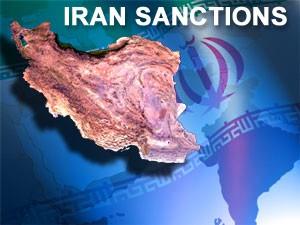
Latest developments on Iran: storm warning issued
By Azer Ahmadbayli – Trend:
Pressure on Iran is increasing. Barely have the protests in Iran calmed down, as the UN published a report claiming that Iran has violated the UN embargo on arms supplies by providing missiles to the Houthi rebels in Yemen.
This is not an accusation of a single representative from a single country, but the official investigation conducted by the international organization, which will be hard for Iran to reject.
Then, on January 12, US President Donald Trump renewed the sanctions waivers but made it clear that it would be the last time he signed the US compliance with the nuclear deal, giving the Congress and European allies a final chance to fix "disastrous flaws" in it.
On January 22, US Vice President Mike Pence said in his speech given in the Israeli Knesset that 'the Iran nuclear deal is a disaster, and the United States of America will no longer certify this ill-conceived agreement.'
The same day, Secretary of State Rex Tillerson announced that the US was dispatching a diplomatic team to Europe to sort out 'flaws in the nuclear agreement.'
It looks like the European signatories of the nuclear deal are going to join Washington in its intention to make conditions of the deal for Iran much more rigorous, commencing talks to shape a unified approach around Iran's ballistic missile program.
In response to the coming US-EU talks, Iranian officials have reiterated their no less rigid position than that of the US that Iran's ballistic missile program was not negotiable. Seyyed Abbas Araghchi, the Iranian Deputy Foreign Minister, called it 'a fully wrong policy', which will certainly have a reverse outcome.
If the US and EU close ranks again, Iran will find itself cornered.
There is a long 'trail of sins' following the Islamic Republic and as soon as Tehran surrenders its position in the missile development program, then the "new" old claims will come to light, for example, human rights, etc.
Logically, the situation will have to calm down if Iran makes concessions, however, the pressure promises to grow, and Tehran is aware of that.
The missile program and military presence in neighboring countries are Iran's assets that could be exchanged only in case of a direct and tangible threat to the very existence of the Islamic Republic.
Apart from tough statements, official Tehran also makes some efforts to defuse current tensions.
Recently, Iranian Supreme Leader Ayatollah Ali Khamenei directed General Staff of the armed forces to divest the army and the Islamic Revolution Guards Corps (IRGC) of non-core assets affiliated with them, meaning any kind of commercial enterprises, and to privatize them.
It can become an effective measure to fuel the country's private sector in the light of the recent unrests, but it could also be a sign to the Europeans (nuclear deal signatories, first of all) that significant part of Iran's national economy will no longer be associated with the IRGC forces, whom many European policy makers consider a terrorist organization.
It can also become an argument for Europeans in their discussions with Washington that still there are forces in Iran trying to reform the current situation and come to terms with the West.
What's next? New tough sanctions, possible bigger unrests, or "Code Red" for missiles aimed at Iranian nuclear and military targets? Could people of Iran avoid the storm? It's a question Iranian leadership can answer only once.

Legal Disclaimer:
MENAFN provides the
information “as is” without warranty of any kind. We do not accept
any responsibility or liability for the accuracy, content, images,
videos, licenses, completeness, legality, or reliability of the information
contained in this article. If you have any complaints or copyright
issues related to this article, kindly contact the provider above.
















Comments
No comment